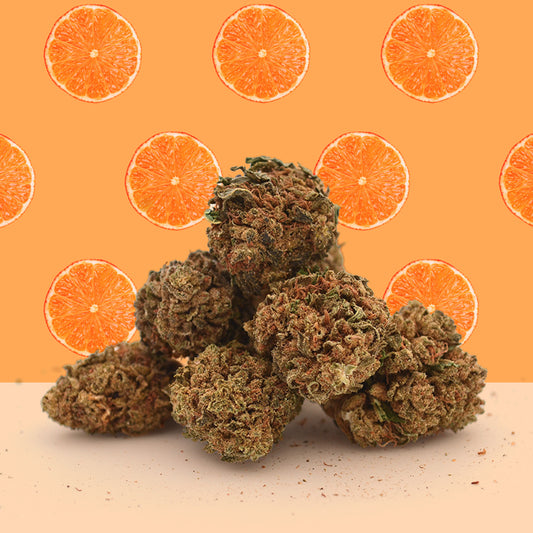Synthetic cannabinoids are increasingly in the news. Concerning their popularity with young consumers, but also the regulations issued by the authorities and their harmful effects. But what are synthetic cannabinoids really? Mama explains everything to help you take care of yourself in complete safety.
To remember
- Synthetic cannabinoids are molecules created from scratch in the laboratory.
- Most of these molecules are declared illegal by the French authorities.
- They are mainly consumed for recreational purposes.
Manufacturing secrets of synthetic cannabinoids
Synthetic cannabinoids are manufactured in laboratories from chemical compounds designed to bypass the effects of THC and produce more potent products.
Unlike CBD or THC extracted naturally from the plant, synthetic cannabinoids are not derived from natural hemp, but are created entirely in the laboratory.
These substances were originally developed by researchers for scientific purposes. They were exploited to study the functioning of the endocannabinoid system in the body, or to explore new medical avenues. Their chemical structure varies widely, which can make them difficult to classify and regulate.
There are different versions of synthetic cannabinoids, which can be sprayed on dried flowers or incorporated into vaping liquids. If the manufacturing process is not controlled, it can lead to significant variations in dosage and purity.
Today, some of these products can be found on the market. Their exact composition is often unclear, raising questions about safety, and increased dependence has been noted by latest studies.
Mama explains the effects of synthetic cannabinoids
Synthetic cannabinoids seek to reproduce the effects of THC, but their reactions can be very different. Some users report sensations akin to euphoria, relaxation or altered perception.
But these effects are often more intense, faster and less predictable than those of natural cannabis. Other testimonials report unpleasant sensations of anxiety, confusion, nausea and palpitations.
As these substances are often more potent, the body can react in unexpected ways, especially if the composition of the product is uncertain. Mama advises you to remain vigilant, because in the long term, this type of substance can cause memory loss, mood disorders and a very strong dependency.
Are synthetic cannabinoids really good for the body?
Unlike CBD or natural THC, synthetic cannabinoids are created in laboratories, and their impact on the body is still poorly understood. It has been proven that chemically-modified products are not really good for the body.
As a result, in recent years, the consumption of synthetic cannabinoids has become more widespread, and health authorities have launched a veritable hunt for these products, which have been declared illicit.
The list of cannabinoids considered narcotics includes H4-CBD, but also H2-CBD, and many more such as HHCPO, THCP and THCA. As a result, their production, sale and use have been banned in Ireland since June 3, 2024. If you're looking for a way to relax, Mama advises you to turn to natural products, which are often the safest way to take care of yourself.
Why are synthetic cannabinoids on the market?
Synthetic cannabinoids have emerged as a stronger and sometimes cheaper alternative to natural cannabinoids such as CBN or CBD. Their intense effects attract some consumers looking for a thrill. These products are mainly consumed for recreational use, with the aim of producing euphoria.
These substances have long evolved in a legal limbo, circumventing cannabis laws thanks to chemical variations that can be consumed discreetly in the form of e-liquid.
Today, French authorities are keeping a close eye on them, as their effects are unpredictable and sometimes dangerous. What's more, consumption of synthetic cannabinoids is increasing among 18-25 year-olds.


![Trim CBD 🧉 [Greenhouse]](http://mamakana.com/cdn/shop/files/TrimCBD_1_62bc19c6-8b2f-416e-aa10-70da357ae351.jpg?v=1720017738&width=533)



![Banana Cream CBG 🍌 [Greenhouse]](http://mamakana.com/cdn/shop/files/banana.jpg?v=1683038126&width=533)



